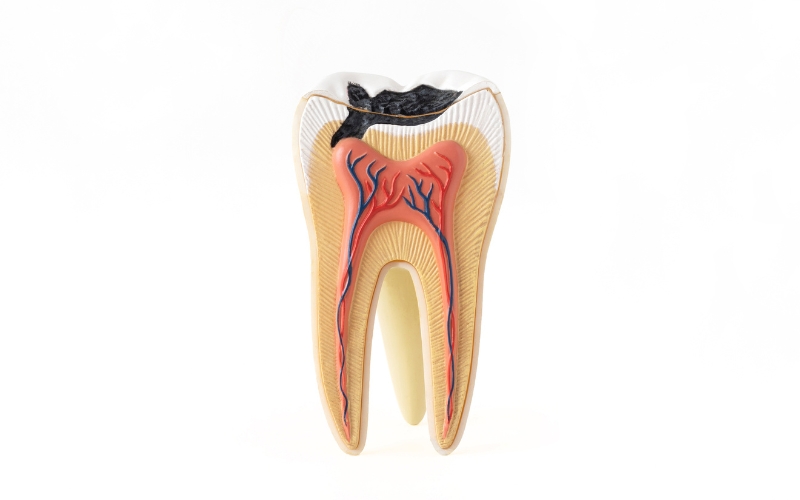
Are you a parent who just found out that your child needs a root canal? The thought of any dental procedure can be daunting, but don’t worry! A root canal in pediatric dentistry is safe and effective. In this blog post, we’ll cover four essential things to know about root canals for kids so that you feel empowered and informed as you go through the process with your little one. Let’s dive in!
What is Pediatric Dentistry?
Pediatric dentistry is a branch of dentistry that focuses on the oral health of children from birth to adolescence. Pediatric dentists are specially trained to provide preventive, diagnostic, and therapeutic dental care for infants, children, and adolescents. They are also trained to manage the unique behavior of young patients and to address their psychological needs.
The American Academy of Pediatric Dentistry (AAPD) recommends that children see a pediatric dentist by their first birthday. The AAPD also recommends that children have a dental home—a place where they can receive comprehensive, continuous, and coordinated dental care—by the age of three.
Preventive care is an important part of pediatric dentistry. Pediatric dentists work with parents to help prevent cavities and other oral health problems. They also teach parents how to clean their child’s teeth and gums properly.
Benefits of a Root Canal in Pediatric Dentistry
There are many benefits of a root canal in pediatric dentistry. The first benefit is that it can help to save a tooth that would otherwise be lost. This is especially important in the case of baby teeth, as losing a baby tooth can cause problems with the development of permanent teeth.
A root canal can also help to prevent further damage to the tooth, which can lead to more serious problems down the road. Finally, a root canal can help to relieve pain and discomfort that may be associated with an infected or damaged tooth.
A root canal in pediatric dentistry can be a great way to save your child’s tooth. It can also help prevent future problems with their teeth and gums. Here are some of the benefits of a root canal in pediatric dentistry:
A root canal can save your child’s tooth: If your child has a tooth that is infected or damaged, a root canal can remove the damaged tissue and save the tooth.
A root canal can help prevent future problems with your child’s teeth and gums: By removing the damaged tissue, a root canal can help prevent future infections or damage to the tooth.
A root canal is less invasive than other dental procedures: A root canal is less invasive than other procedures, such as extractions or implants, and can be completed in one visit to the dentist.
A root canal is relatively painless: With modern technology, a root canal is typically a pain-free procedure for most children.
Things to Know About a Root Canal in Pediatric Dentistry
As a parent, you may be wondering if your child needs a root canal. Here are some things to know about this procedure in pediatric dentistry:
1. Pediatric dentistry and root canal treatment
Pediatric dentistry is a branch of dentistry that specializes in the care of children’s teeth. Root canal treatment is one of the most common procedures performed by pediatric dentists.
Root canal treatment is necessary when the pulp (nerve and blood supply) of a tooth becomes infected. This can happen as a result of tooth decay, injury, or other damage to the tooth. The infection can cause pain, swelling, and other problems.
2. A root canal
Once your child’s permanent teeth have come in, they will need to be cared for just like your own. This includes regular brushing, flossing, and visits to the dentist. If your child develops a cavity or other issue with one of their permanent teeth, they may need a root canal. Here’s what you should know about this common procedure in pediatric dentistry.
3. Root canals and children
Root canal treatment is used to save a tooth that has been damaged by decay or injury. The procedure involves removing the damaged tissue from inside the tooth and sealing it to prevent further damage. Root canals are often necessary when a child has a cavity that has reached the nerve of the tooth.
While root canals are generally safe, there is always a risk of complications, such as infection. That’s why it’s important to have your child seen by a pediatric dentist who has experience performing this procedure.
If your child does need a root canal, the procedure will be performed under local anesthesia to keep your child comfortable. The dentist will make a small opening in the tooth and remove the damaged tissue. The tooth will then be sealed and a crown may be placed on top to protect it from further damage.
After the procedure, your child may experience some discomfort and tenderness in the treated area. This is normal and should go away within a few days. If you have any concerns, be sure to contact your child’s dentist.
4. The root canal procedure
A root canal saves a tooth damaged by decay or injury. During the procedure, the dentist removes the damaged tissue from inside the tooth, then fills and seals it.
Typically, dentists perform root canals, but sometimes endodontists—dentists who specialize in treating the inside of teeth—may be needed. Depending on the damage’s extent, root canals can occur in one or more visits.
Before starting the procedure, your child will receive local anesthesia to numb the area around the tooth. Once the anesthesia takes effect, the dentist will create an opening in the tooth to remove the damaged tissue.
After removing the damaged tissue, the dentist cleans and seals the inside of the tooth. A temporary filling will protect the tooth until a permanent restoration, such as a crown, is placed.
Pediatric root canals provide a safe and effective way to save your child’s teeth when damage or decay occurs. By understanding the procedure, risks, costs, and possible side effects of a pediatric root canal, you can make an informed decision about your child’s oral health. With proper care after the procedure, your child can enjoy healthy teeth just like any other child their age!



